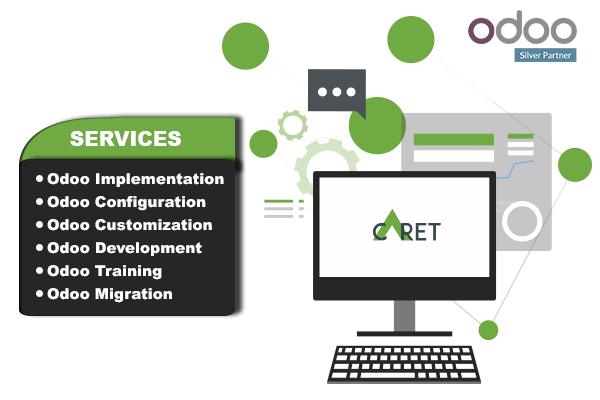Top 10 reasons ERP implementation failure in Market like India.
Poor Understanding
Every business is comprised of a number of different components, like sales, purchases, marketing, CRM, and so on. Even if each department has their own set of data and requirements, it all needs to meet one common point in the organization. So, while everyone may have their own individual responsibilities, everyone is serving one main purpose at the end of the day. A well-implemented enterprise resource planning software can solve your data silo woes, but an already broken system can make things a bit more difficult.
Not finding Right System
ERP systems cost a penny and often take hundreds of hours to tweak. Vendors typically have different expectations about providing services, timelines, and costs than the businesses that use their software do. After we have taken some issues into consideration, we will need to pick a vendor that satisfies those needs. Ask vendors about the issues we could potentially see and what plans are in place to address the problems.
Poor Adoptions
If the employees are not comfortable using the system, you will not see the benefits that you’d hoped for. Moreover, your employees should also feel a desire to use the new software. If they’re happy with the current system, then there’s a slim chance that they’ll take kindly to the new technology. Proper training can be critical in bypassing this issue. Working with a trainer can help employees to get a better handle on how to overcome a lot of the problems your vendor might not have a solution to.
Destination
Once an organization makes the decision to implement an odoo ERP system, the first step is to have a clear definition of success. The lack of unity on the problems being solved, the outcome desired, or the specific financial justification of the project leads to challenges later in controlling the scope and maintaining executive sponsorship. A clear destination means defining the important business processes, benefits, and deadlines up front and making certain stakeholders agree on how to address them.
Under-estimating resources required
A solid understanding of the internal and external resources needed to complete the project is critical. For internal resources, understanding the time commitment needed from business users, typically in the Finance, Accounting, or HR department, is one of the most commonly underestimated areas. During critical phases of the project. For external resources, having an agreement up-front with your consultants and contractors about the specific skills needed is critical.
Over-dependence on the consultants
Too much reliability on consultant can make the team more redundant. Most ERP implementation projects involve consultants, for the expertise, best practices, and additional resources. While their experience is definitely helpful for a project, there is a risk that the company can become over-dependent on the consultants.
Insufficient testing
When schedules get tight and lack of time, reducing the number and depth of test cycles it is one of the areas that often get cut. The purpose of testing in an ERP project is not to see if the software works. The purpose is to see if the system meets your business needs and produces the output you need.
Lack of proper training
Today’s ERP systems are being used by more and more personnel within a company. Beyond the finance and accounting departments, modern systems also cover procurement, supply chain functions, compliance, customer relationships, sales, and so on. If the system includes HR or expense reporting, then essentially all employees use the system. Leaving training to a small phase at the end of the project makes it very difficult for users to get the training because they need to understand the system.
Poor Implementation
Implementation should be done in a proper manner to be successful. The implementation method should be in line with the goals of the organization. Sometimes, lack of a clear strategy on the problems that the ERP is expected to solve and the desired outcome lead to challenges in implementation. For the successful ERP implementation, an organization can improve its competitive advantage, increase productivity and raise customer service levels, and reduce inventories.
Lack of Adequate Resources
For internal resources, the organization should have a solid timeline on the commitment required from critical employees that will be using the ERP, usually those in the Accounting or HR. And for external resources, the organization should find out from the consultants and contractors the duration, skills, and resources required for the successful ERP system implementation and execution of the system.
Conclusion
Being an Official Silver partner of Odoo, we at Caret IT offer all the services to our clients related to Odoo. We have expertise in Odoo Implementation, Odoo modification, Odoo integration, and much more.
Connect with us for all your queries related to Odoo, our Odoo experts are always available for your assistance.
